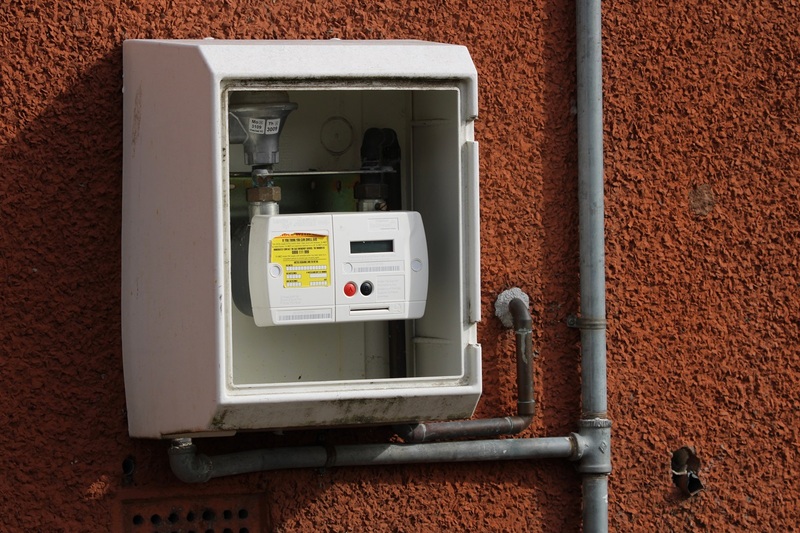Dear visitor,
You're reading 1 of your 3 free news articles this quarter
Register with us for free to get unlimited news, dedicated newsletters, and access to 5 exclusive Premium articles designed to help you stay in the know.
Join the UK's leading credit and lending community in less than 60 seconds.
Energy suppliers to pay millions in compensation over unauthorised prepayment meter installations
Energy suppliers will pay £18.6m in compensation and debt write-offs to customers over unauthorised prepayment meter installations.

Senior Journalist, covering the Credit Strategy and Turnaround, Restructuring & Insolvency News brands.
Focussed specifically on customers who had a meter installed between 1 January 2022 and 31 January 2023, suppliers will pay £5.6m in compensation with a further £13m spent to write off the debt from customers who had such a meter installed without permission.
It comes on top of the £55m of financial support provided directly to affected consumers by energy suppliers before completing the review, which took place in 2023, in the form of hardship payments and debt write-off.
Overall, customers could be compensated as much as £1,000 – with the compensation scheme breaking down as follows:
- Process misalignment, data quality and record keeping: Goodwill payments of £40-60 will be paid by suppliers on a case-by-case basis
- Insufficient debt support: £250
- Unfair customer treatment: £250
- Vulnerability not considered: £500
- Inappropriate installation, switch or use of a prepayment meter: £1,000
This comes off the back of regulator Ofgem’s Market Compliance Review, which required suppliers to examine their practices around more than 150,000 cases of involuntary prepayment meter installation – including both those installed under warrant and smart meters that were remotely switched to prepayment mode.
On top of this, the regulator also examined the warrant process and customer journey when an involuntary prepayment meter is installed and worked with consumer groups and charities to analyse evidence of the most serious breaches.
Ofgem’s director general of markets Tim Jarvis said: "This has been one of the most detailed reviews of supplier practices in Ofgem’s history looking at tens of thousands of cases. It has taken time, but our priority has been to put things right for those who weren’t treated properly, and ensure we don’t see bad practice repeated.
"Whilst the number of cases where a prepayment meter was wrongfully installed is relatively low compared to the total number of PPM customers, even one case is too many.
"Our review also found wider issues with the processes suppliers had in place, which is why we’ve put in place clearer, tougher rules to protect customers in vulnerable situations, and I’m pleased that from today suppliers will be applying our compensation framework for those customers affected and have also committed to further support such as debt write off.
"We have made our expectations clear to suppliers on how those customers who were treated poorly should be compensated. They have, and continue to, work closely and collaboratively with us to make sure their processes are robust and that their customers are properly supported."
The Market Compliance Review has now closed for the eight suppliers involved; however the regulator has said that enforcement investigations into British Gas, Utilita and Ovo are continuing.
Responding to the news, Energy UK’s chief executive Dhara Vyas said: "Suppliers have worked hard to co-operate with this comprehensive review and taken further action to put things right in the cases where a prepayment meter shouldn’t have been installed – or where there was insufficient support for the customers concerned.
"Since the period covered by this review, a new Code of Practice has been adopted and agreed between suppliers and Ofgem.
"This has strengthened the safeguards for customers and detailed the process that suppliers must follow before any installation – including making repeated attempts to contact the customer first and carrying out a site visit to ensure meters are only installed where it is safe to do so.
"Suppliers have been working closely with Ofgem to meet the requirements of its review and have signed up to the Code of Practice before they have been able to restart involuntary installations of prepayment meters and have carried out thorough testing of the new processes.
"Involuntary installations have been a last – but necessary – resort for cases where repeated attempts to address debt with the customer through other means have been unsuccessful.
"It’s bad for customers to fall further and further into arrears, and bad debt ultimately drives up the prices that are paid by all customers.
"Since the pause on installations, customer debt has risen to a record £4bn, and the industry remains keen to work with Ofgem on the proposed relief scheme to tackle this problem."
Stay up-to-date with the latest articles from the Credit Strategy team
Get the latest industry news






